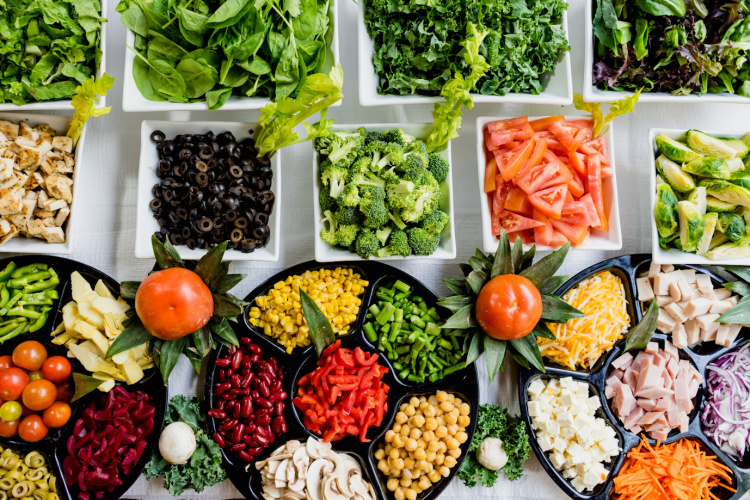Simple Ways to Tell if Your Food is Nutritious
Mar 6, 2023

Proper nutrition is one of the most important ways to ensure you lead a healthy, happy, long life. In fact, studies show that eating a balanced diet plays a role in all sorts of things, including:
- Lowering the risk for serious health issues like heart disease and type 2 diabetes.
- Managing chronic conditions to prevent complications.
- Protecting against illnesses.
- Increasing the quality of life.
- Improving cognitive abilities and mental wellness.
That’s just a few reasons why good nutrition is so vital! Here’s the thing: It can be challenging to know whether your food is nutritious. Labels can be confusing if you’re not a nutrition expert, and honestly, how many of us are?
March is National Nutrition Month, making it an excellent time to focus on getting the proper nutrition. That’s why we put together a beginner’s guide to help you read the food label to determine if food is nutritious and worth chowing down — or low quality and suitable only for the garbage can.
Check the Ingredients First
Ingredients on nutrition labels are supposed to go according to their quality. So, if ingredients like sugar, salt, or enriched wheat flour are listed first, they’re the most plentiful in that particular food. That’s a quick way to tell if the food is healthful or packed with low-quality contents.
The Type of Fat Matters
All fats are not created equally. Some, like polyunsaturated and monosaturated, are good for you in moderation. You can find these types of fats in foods like salmon and nuts, and they can help lower your bad cholesterol. Other fats, like trans and saturated fats, can raise bad cholesterol and increase the risk of heart disease.
100% Is the Number to Look For
Whole grains are a vital part of a balanced diet. Unfortunately, many food labels can be deceptive regarding whether something is really whole grain or not. If the bread packaging doesn’t have “100%” on it, it’s likely not 100% whole grain and is likely processed with refined grains, lowering its nutritional value. That’s also the case when it comes to juice. Juices that don’t have 100% on the label likely contain a bunch of added sugars.
Fiber is Your Friend
Your first instinct when looking at a nutrition label is likely to study the calories and serving size. While that is important, so is finding the fiber numbers. High-fiber foods tend to have fewer carbohydrates and lower added sugars. Fiber also keeps hunger in check by regulating how the body breaks down sugar.
Sugar Content Matters
Speaking of sugar, that’s another one you’ll want to hone in on. The American Heart Association recommends consuming an average of 25 grams of sugar daily. Most of us consume way more than that. Check every label for its sugar content, and avoid anything with high levels.
Knowing whether food is nutritious can seem like a daunting task. Diet-to-Go can help! Our chef-crafted meals are controlled for calories and portion size, don’t use added preservatives, and deliver healthy, quality nutrition right to your door.
Ready to get started? Check out our meal plans today!
------------------------------------------------------------------------------------
Author: Caitlin H
Diet-to-Go Community Manager
Caitlin is the Diet-to-Go community manager and an avid runner. She is passionate about engaging with others online and maintaining a healthy, active lifestyle. She believes moderation is key, and people will have the most weight loss success if they engage in common-sense healthy eating and fitness.










